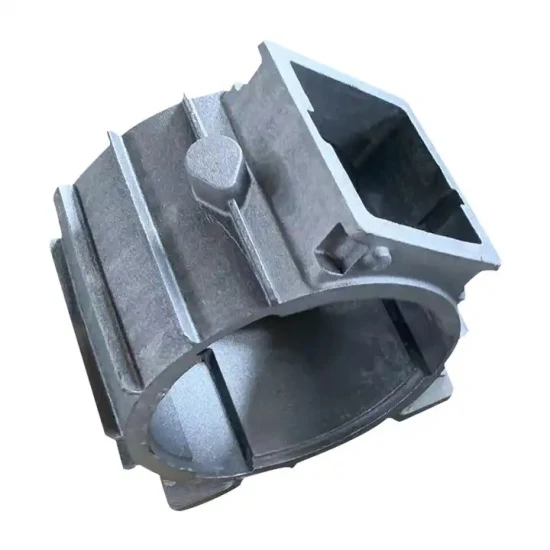What Does Stahl Specialty Company Mean?
What Does Stahl Specialty Company Mean?
Blog Article
Stahl Specialty Company Fundamentals Explained
Table of Contents8 Simple Techniques For Stahl Specialty CompanyFascination About Stahl Specialty CompanyThe Greatest Guide To Stahl Specialty CompanyNot known Details About Stahl Specialty Company Some Ideas on Stahl Specialty Company You Need To Know
The refined difference hinges on the chemical content. Chemical Comparison of Cast Aluminum Alloys Silicon promotes castability by reducing the alloy's melting temperature level and improving fluidity throughout spreading. It plays an essential duty in permitting detailed mold and mildews to be filled up precisely. Furthermore, silicon contributes to the alloy's toughness and put on resistance, making it beneficial in applications where durability is essential, such as automotive components and engine parts.It also enhances the machinability of the alloy, making it much easier to process into finished products. In this means, iron contributes to the overall workability of aluminum alloys. Copper increases electrical conductivity, making it useful in electrical applications. It additionally enhances rust resistance and contributes to the alloy's total strength.
Manganese adds to the strength of aluminum alloys and enhances workability. It is generally used in wrought light weight aluminum items like sheets, extrusions, and accounts. The existence of manganese help in the alloy's formability and resistance to cracking during construction processes. Magnesium is a light-weight component that gives strength and effect resistance to aluminum alloys.
It allows the production of lightweight components with exceptional mechanical residential properties. Zinc boosts the castability of light weight aluminum alloys and aids regulate the solidification process during spreading. It boosts the alloy's stamina and solidity. It is usually located in applications where detailed forms and fine information are essential, such as attractive spreadings and particular vehicle components.
Stahl Specialty Company Fundamentals Explained
Because aluminum-silicon alloys have good spreading homes, high gas properties, straightforward processes, and superb rust resistance, aluminum-silicon alloys are most frequently used in the die-casting market at home and abroad. At the same time, aluminum-silicon alloys are also relatively early and extensively identified alloys created and made use of in die-casting. After constant research and enhancement, most of the existing worldwide mainstream aluminum-silicon alloys have actually been completed and are absolutely nothing greater than A356, A360, A380, ADC12, B390, and A413.
The primary thermal conductivity, tensile stamina, return toughness, and elongation differ. Select suitable resources according to the efficiency of the target item created. Amongst the above alloys, A356 has the greatest thermal conductivity, and A380 and ADC12 have the most affordable. The tensile restriction is the contrary. A360 has the most effective yield toughness and the greatest prolongation price.

The 3-Minute Rule for Stahl Specialty Company
In precision casting, 6063 is well-suited for applications where detailed geometries and top notch surface area coatings are critical. Examples consist of telecommunication units, where the alloy's premium formability permits for streamlined and visually pleasing designs while preserving architectural honesty. Likewise, in the Illumination Solutions market, precision-cast 6063 elements develop classy and reliable illumination components that call for complex shapes and great thermal efficiency.
(https://letterboxd.com/stahlspecialc/)
It results in a better surface coating and far better corrosion resistance in A360. The A360 shows superior elongation, making it perfect for complicated and thin-walled parts. In precision spreading applications, A360 is appropriate for markets such as Customer Electronics, Telecommunication, and Power Tools. Aluminum Casting. Its boosted fluidity enables for detailed, high-precision elements like mobile phone housings and communication gadget real estates.

In accuracy spreading, light weight aluminum 413 radiates see post in the Consumer Electronic Devices and Power Tools industries. It's commonly utilized to craft intricate components like mobile phone housings, camera bodies, and power device casings. Its precision is exceptional, with limited tolerances up to 0.01 mm, making certain perfect product setting up. This alloy's remarkable corrosion resistance makes it an excellent choice for outdoor applications, guaranteeing long-lasting, sturdy products in the stated industries.
Little Known Facts About Stahl Specialty Company.
Once you have made a decision that the aluminum die casting procedure appropriates for your project, an important next step is determining on one of the most appropriate alloy. The aluminum alloy you select will substantially affect both the spreading process and the residential or commercial properties of the final product. Due to this, you need to make your choice meticulously and take an educated method.
Establishing the most ideal aluminum alloy for your application will imply considering a large variety of features. The first classification addresses alloy characteristics that affect the production procedure.
The alloy you choose for die spreading directly affects a number of elements of the casting procedure, like exactly how very easy the alloy is to collaborate with and if it is prone to casting defects. Hot splitting, likewise called solidification cracking, is a common die casting flaw for light weight aluminum alloys that can result in inner or surface-level splits or cracks.
The Ultimate Guide To Stahl Specialty Company
Specific aluminum alloys are much more susceptible to warm splitting than others, and your option must consider this. Another common flaw found in the die casting of aluminum is pass away soldering, which is when the cast sticks to the die walls and makes ejection challenging. It can harm both the actors and the die, so you ought to seek alloys with high anti-soldering buildings.
Corrosion resistance, which is already a noteworthy feature of aluminum, can differ significantly from alloy to alloy and is a vital particular to take into consideration depending on the ecological problems your product will be subjected to. Put on resistance is one more building typically looked for in light weight aluminum items and can separate some alloys.
Report this page